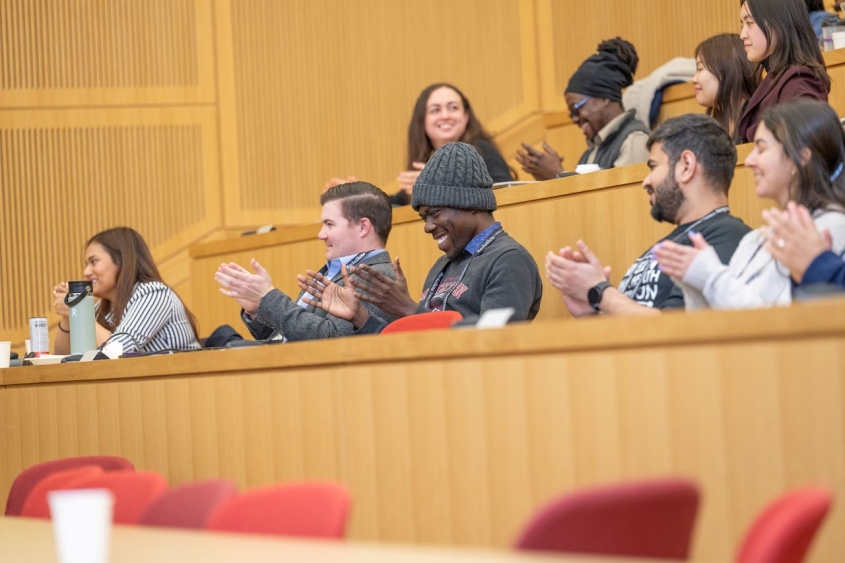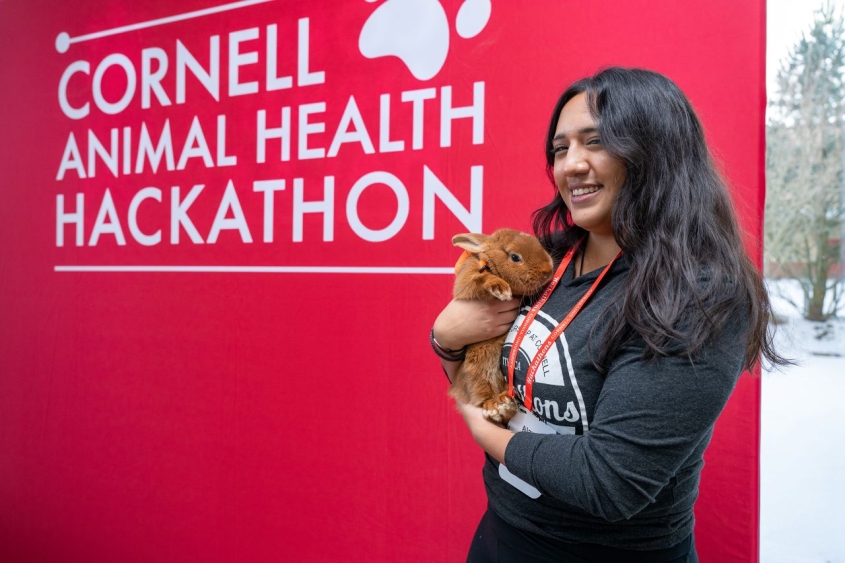Cornell Animal Health Hackathon 2025: Solutions for poultry pathogens, tick disease and more
The Cornell University College of Veterinary Medicine, in collaboration with Entrepreneurship at Cornell, hosted the ninth annual Cornell Animal Health Hackathon earlier this month, bringing together 138 students ranging from eight different Cornell colleges, forming 27 teams to tackle pressing issues in animal health.
“This year’s hackathon was an incredibly successful one,” says Jorge Colón ’92, D.V.M.’95, director of veterinary business education. “The creativity and dedication demonstrated by the competing teams was truly impressive.”
Team innovations included everything from smart collars that track pets’ vitals, to mobile equine recovery units, to web-based mentorship platforms for veterinarians, and beyond.
The winning teams for each of the three judged categories were as follows:
- Most market potential animal health solution:
Team Whisker Wizards designed an oral, vectored Lyme disease vaccine to reduce disease prevalence in small mammal reservoirs and ticks. The team included Siyoon Lim (CALS, BS), Angie Marin (CVM, DVM), Hamer Goolsby (CVM, DVM), Premika Amudhan (CVM, MPH), Iris Li (ENGR, MENG), and Kaushik Iyer (ENGR, MENG). - Most novel and innovative animal health solution:
Team The Deticktives developed a solution for an easy, contactless detection of ticks. The team members were Amy Salim (CVM, DVM), Ehlaam Imran Hanwari (ENGR, MENG), Nilabha Mukherjea (ENGR, MENG), Sahana Kakarla (ENGR, MENG), and Vivian Hu (ENGR, BS). - Most relevant and impactful animal health solution:
Team Monsters Inc. created a first response virus detection system that collects environmental DNA to prevent biosecurity outbreaks of airborne viral pathogens in poultry production. The team consisted of Kristen Dong (CALS, BS), Lani Lin-Kissick (CALS, BS), Jeremiah Pouncy (CVM, DVM), Vanessa Alcocer (CVM, MPH), Yao Foli (CVM, MPH), and Darian Nwankwo (ENGR, PhD).
“Every year, the hackathon showcases the interdisciplinary collaboration and innovative spirit of Cornell students,” says Colón. “It not only highlights the potential for impactful solutions in animal health, but also fosters a unique opportunity for students to build community beyond their own degree programs and colleges and work towards an exciting, shared purpose.”
Written by Lauren Cahoon Roberts








